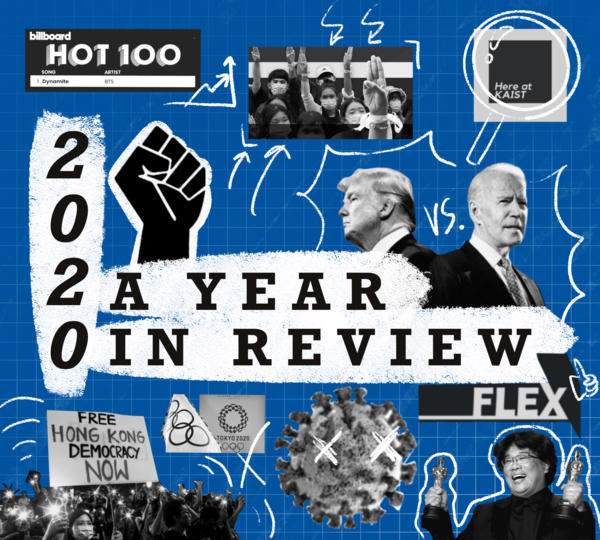
Frankly, no predictions in relation to COVID-19 will be 100 percent accurate, which makes 2021 a difficult year to foresee. Even if we tried to focus on non-COVID-related matters, it is hard to eliminate the effects the virus will still have on all aspects of our lives. Will the Olympics be pushed back again? Will Black Widow be released as rescheduled? Will things go back to normal by the end of next year? No one can answer these questions with full confidence. However, let us leave the uncertainties aside and discuss what may be expected of the coming year. It is still worth discussing the possibilities to either prepare for unexpected situations in advance, or simply have something to look forward to after a long, difficult year.
In these turbulent times, what the world seems to need now is a hero. And as the newly elected president of the US, perceivably the world’s most powerful nation, could Biden be one? The policies he proposed sure do look ambitious. One of the biggest differences in his prospective path compared to the one Trump walked on is the will to repair and expand cooperation with allies. Biden and his supporters especially hope to mend relationships with European nations through the North Atlantic Treaty Organization (NATO), and to reconcile with the East Asian allies, namely Japan and South Korea. Biden has also vowed to return to the Paris Climate Agreement and the World Health Organization (WHO), which Trump has resigned the US from back in June 2017 and July 2020, respectively.
Meanwhile, the 2020 Summer Olympics, which was meant to be held in Tokyo last July, had been rescheduled to 2021. However, Tokyo is currently facing its third, yet the worst wave of COVID-19 infections, and confirmed a record number of cases only last week. Will Tokyo be able to hold the Games next year? We’ll simply have to wait and see. But for now, mark July 23 for the opening ceremony, and August 24 for the subsequent Paralympics.
In the scientific world, we have NASA’s ambitious space agenda to look forward to. The James Webb Space Telescope (referred to as JWST or Webb), which will succeed the Hubble Space Telescope, is to be launched on October 31, 2021. According to NASA, Webb “will be the largest, most powerful and complex space telescope ever built and launched into space”. Since its launch in 1990, humanity has gained an unprecedented amount of insight thanks to the Hubble Space telescope. It helped scientists determine the age of the universe, the steps to planet formation, identified extrasolar organic matter, and many more. Webb is expected to “complement and extend” Hubble’s job with “longer wavelength coverage and greatly improved sensitivity”.
In Europe, the EU has voted to abolish daylight saving time (DST) starting next year. The purpose of DST, which, as the name suggests, was to make the most of the hours with daylight. However, the switching of time, though by only an hour, is said to disturb the biorhythms of both human and livestock.
With major political and social issues aside, another interesting yet devastating fact about 2021 is that Korea will see a very small number of public holidays. Only eight out of 15 public holidays will not coincide with either Saturday or Sunday, and this is far less than the 11, 13, and 15 weekdays off we had in 2020, 2019, and 2018 respectively.
Finally, KAIST will reach a milestone of its 50th anniversary in 2021. In celebration of the Golden Jubilee, Advanced Materials has issued a special edition introducing KAIST’s innovative achievements in the area of materials science and engineering, and KAIST is planning to construct a 50th Anniversary Memorial Building. The milestone will be an opportunity for us to look back on KAIST’s achievements over the last 50 years and prepare for the next 50 to come.
A lot of what is mentioned will depend heavily on how things turn out with COVID-19. A silver lining shined through the situation in early December, when Pfizer and BioNTech presented a vaccine with 90 percent effectiveness according to preliminary data. Moderna followed with similar results only a week later. While the UK has granted emergency authorization for the Pfizer-BioNTech vaccine, the US Food and Drug Administration is still in the process of reviewing both applications. Optimistic scientists expect to see a significant portion of the world population vaccinated by the end of next year. Again, it has been a long and difficult year, full of unpredictabilities and disappointments. However, let us for now leave all the bad things behind and hope for a better year in 2021. The KAIST Herald wishes you a merry Christmas and a happy New Year.

